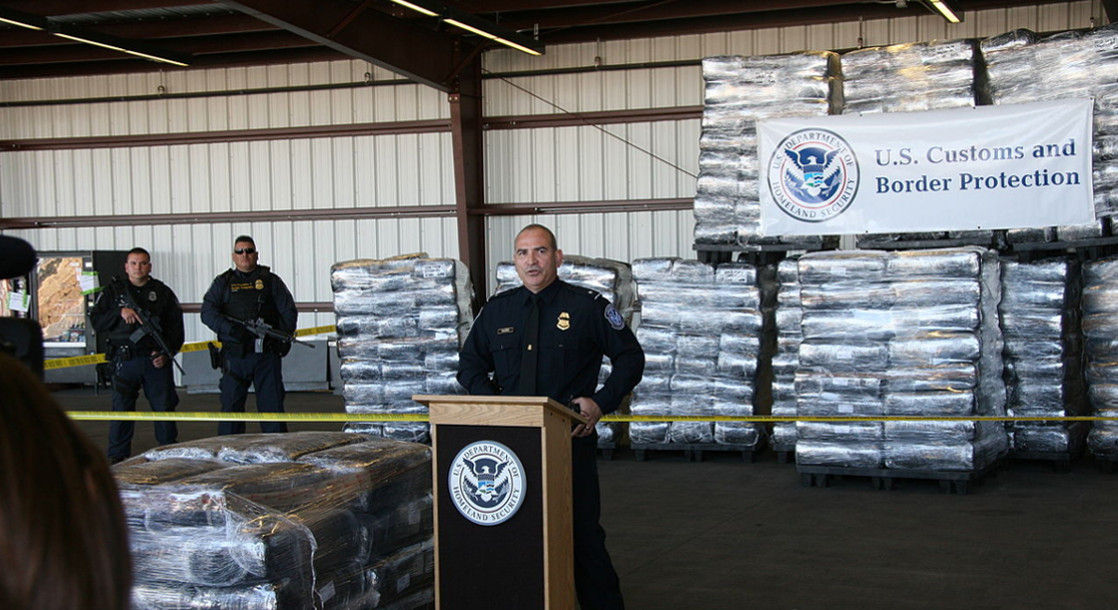Photo via U.S. Customs & Border Protection
Ever since he was appointed by President Trump, Attorney General Jeff Sessions has threatened to utilize all resources available to him to crack down on cannabis offenders, but this proposed assault has not yet come to pass. New data from the United States Sentencing Commission (USSC) — first reported by Marijuana Moment — reveals that the number of federal criminal cases for cannabis actually dropped by 25% from 2016 to 2017, continuing a downward trend that began during the Obama administration.
“The number of marijuana cases represents a 25.3 percent decline from the year before,” the fiscal year 2017 report states. “Marijuana cases have declined by 45.8 percent since fiscal year 2013.” As noted by Kyle Jaeger at Marijuana Moment, this steady decrease likely has a lot to do with the Cole memo — guidance issued by former U.S. Deputy Attorney General James Cole in 2013 that directed federal prosecutors not to interfere with state-legal cannabis operations.
The Cole memo remained in effect throughout the beginning of the Trump administration, but Sessions rescinded the guidance this January, freeing up Department of Justice resources to enforce federal laws prohibiting cannabis. In Oregon and California, U.S. Attorneys recently have announced that they are intervening to curtail black market marijuana production and smuggling, but will leave compliant state-legal canna-businesses alone. Their investigations may increase the number of federal cases brought against cannabis offenders this year, but Sessions did state in March that his department doesn't have enough resources to crack down on “routine” offenders.
Although cannabis-related federal cases have fallen significantly, drug crimes were still the most common type of federal crime prosecuted last year. Slightly over 30% of all federal criminal cases brought last year were drug-related, slightly more than the caseload related to immigration, and significantly more than the 12% of cases brought against firearm offenders, or the 2.7% of cases involving child pornography.
Also of positive note to drug reform advocates is a decline in mandatory minimum sentences. Around 44% of all drug offenders convicted by federal prosecutors were charged with crimes carrying mandatory minimum punishments — the lowest rate seen since 1993. Out of all federal convictions, cannabis offenders were given the shortest sentences, with an average of 29 months in jail.
The downward trend in cannabis arrests can be seen as a reflection of “shifting federal priorities among both U.S. drug enforcement and border agents,” Paul Armentano, deputy director of NORML, said to Marijuana Moment. Armentano added that the change “may also be attributable to the reality that international drug trafficking organizations in recent years, following the advent of legalization in several U.S. jurisdictions, have largely shifted their efforts away from marijuana.”
The USSC report notes that 92% of all drug-related cases last year involved trafficking, but also that 1,301 cases were brought against individuals who were simply in possession of an illegal drug. The majority of all drug-related crimes were related to stimulants, with meth accounting for 34.6% of the total cases, and powder and crack cocaine accounting for 26.6% of cases combined. The number of cases involving these drugs has increased substantially since 1994.











